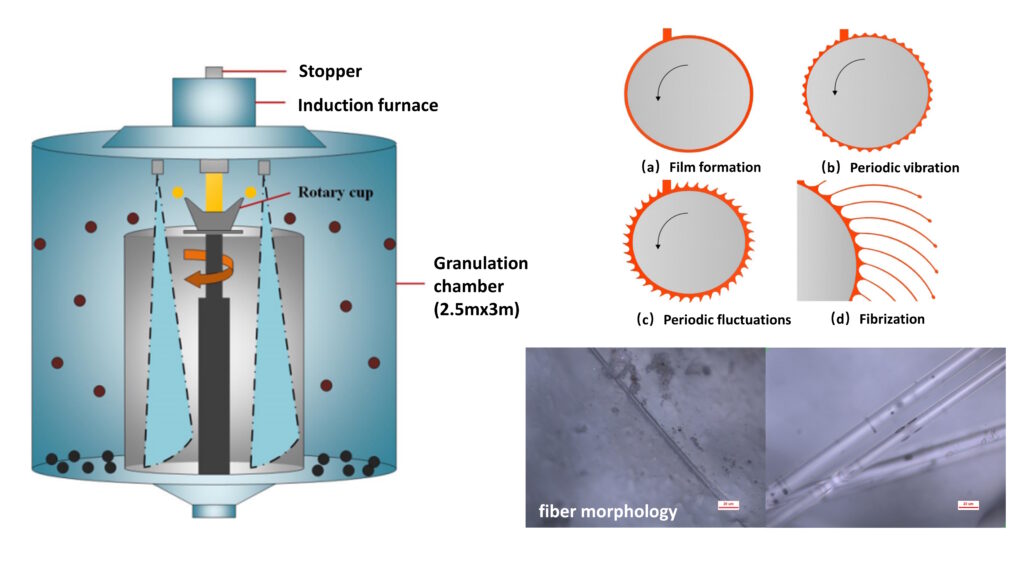Completed: Low carbon manufacturing of high-quality mineral wool using high-temperature steelmaking slags and high-silica wastes from multi-sectors
In collaboration with Glass Futures
A large amount of high-temperature steelmaking slag (1400~1600 ℃) is produced during pyrometallurgical production. The heat (energy) carried by these slags is released into the atmosphere during the tapping process and is not used effectively. On the other hand, a large amount of heat is required to remelt the cold slag during manufacturing mineral wool, and high-silicon materials are added to facilitate fibrization. This project investigated the use of heat from molten metallurgical slag and high-silica wastes to directly manufacture high-quality mineral wool to reduce energy consumption and CO2 emissions.

The project focused on a modified mixture for the steel wool with a slag:glass:SiO2:Al2O3 ratio of 4:4:1:1, as the melting temperature, viscosity, and composition meet the requirement of wool fibre manufacturing. It was found that for the production of one ton of mineral wool, 400kg of molten slag can be used, whilst utilising the heat from the molten slag, saving 13.65kg coke per ton of wool production, thereby reducing CO2 emissions by 50.04kg/t wool

Dr. Zhiming Yan zhiming.yan@warwick.ac.uk
University of Warwick
Published: September 23rd, 2022
Posted in
projects





